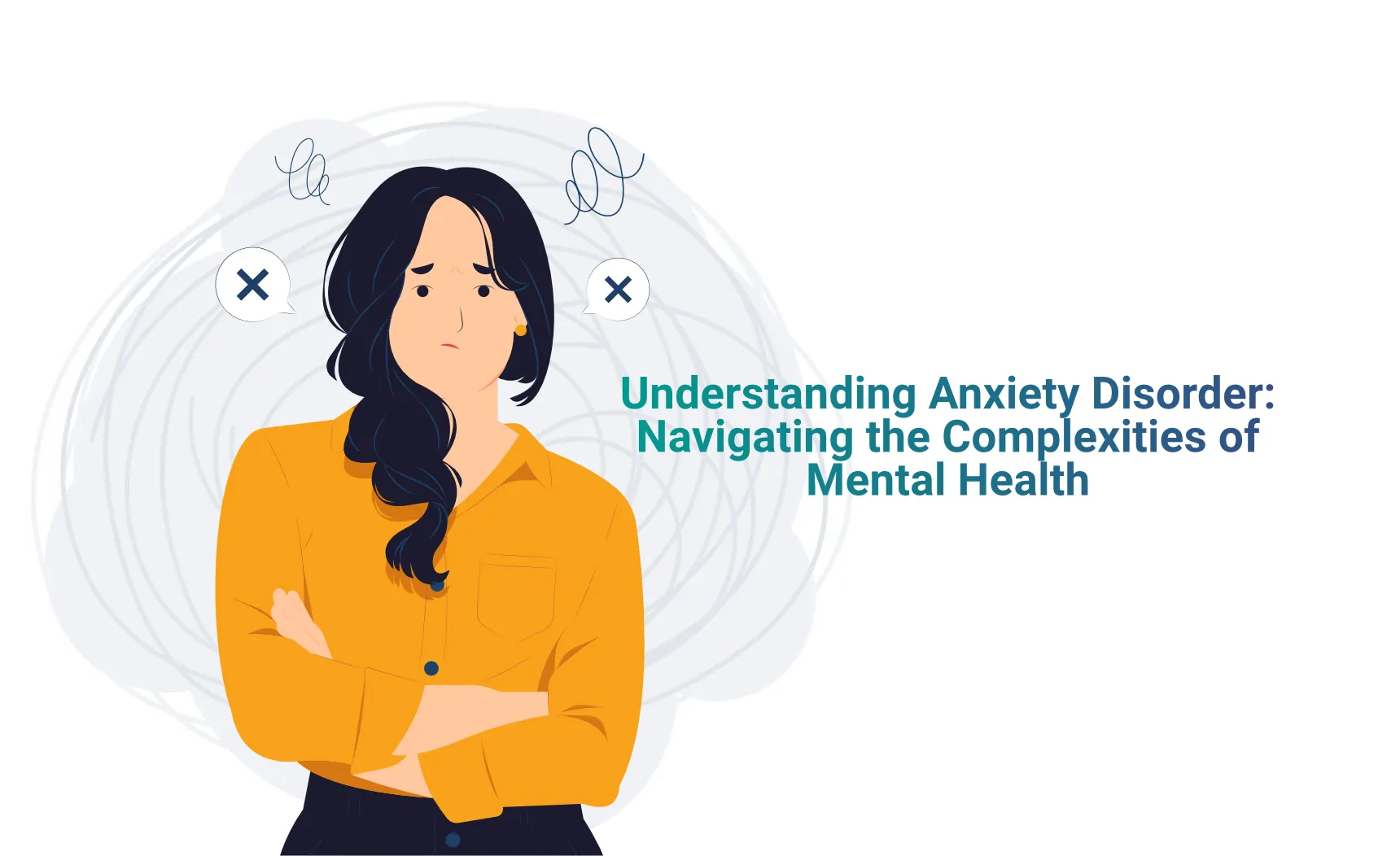
Understanding Anxiety Disorder: Navigating the Complexities of Mental Health
Anxiety disorder affects millions of people worldwide, showing up in different ways and greatly impacting daily life. In this blog, we’ll explore what anxiety disorder is, its common symptoms, underlying causes, and practical tips for managing it.
What is Anxiety Disorder?
Anxiety disorder includes various mental health conditions characterized by persistent and intense feelings of worry, fear, or apprehension. Unlike occasional stress or nervousness, anxiety disorder involves intrusive thoughts and emotions that can significantly disrupt daily life. It’s important to recognize that anxiety disorder is a real medical condition, not just a matter of being overly sensitive.
Common Symptoms of Anxiety Disorder
Anxiety disorder symptoms can affect both the mind and body. Some common symptoms include:
- Persistent Worry: Constant and uncontrollable worry about various aspects of life, such as work, relationships, or health.
- Physical Symptoms: Muscle tension, headaches, trembling, sweating, and gastrointestinal issues.
- Sleep Disturbances: Difficulty falling or staying asleep, leading to fatigue and irritability.
- Cognitive Symptoms: Trouble concentrating, making decisions, or remembering information.
- Panic Attacks: Sudden episodes of intense fear or discomfort, with symptoms like rapid heartbeat, shortness of breath, and chest pain.
Causes of Anxiety Disorder
The exact cause of anxiety disorder is not fully understood, but it likely involves a mix of genetic, environmental, and psychological factors. Some potential causes include:
- Genetics: A family history of anxiety disorders can increase the risk.
- Trauma or Stress: Traumatic events, chronic stress, or significant life changes.
- Brain Chemistry: Imbalances in neurotransmitters like serotonin and dopamine.
- Personality Traits: Traits like perfectionism, pessimism, or a tendency to overthink.
- Medical Conditions: Conditions like thyroid disorders, cardiovascular disease, and chronic pain.
You Must Read: Role of Rehabilitation in Recovery from Traumatic Injuries
Managing Anxiety Disorder
While anxiety disorder can be challenging, there are many effective strategies to manage its symptoms and improve well-being:
- Seek Professional Help: Consult a mental health professional for personalized treatment plans, which may include therapy, medication, or both.
- Therapy and Counseling: Cognitive-behavioral therapy (CBT), mindfulness-based therapy, and exposure therapy can help identify and challenge negative thoughts, develop coping skills, and face fears.
- Medication: Medications like SSRIs, SNRIs, and benzodiazepines may be prescribed to alleviate symptoms.
- Lifestyle Modifications: Regular exercise, adequate sleep, a balanced diet, and limiting caffeine and alcohol can significantly improve mental health.
- Stress Reduction Techniques: Practice deep breathing exercises, progressive muscle relaxation, meditation, or yoga to reduce stress and promote calm.
- Social Support: Build a support network of friends, family, or support groups to provide emotional support and encouragement.
- Self-Care Practices: Engage in activities that promote relaxation, such as spending time in nature, pursuing hobbies, listening to music, or journaling.
- Mindfulness and Mind-Body Practices: Practices like mindfulness meditation and guided imagery can help reduce rumination and improve well-being.
- Educate Yourself: Learn more about anxiety disorder to better understand your condition and advocate for your needs.
- Stay Connected with Healthcare Providers: Maintain open communication with your healthcare team to ensure effective treatment.
Conclusion
Living with anxiety disorder can be tough, but remember that help and support are available. By understanding anxiety disorder, recognizing its symptoms, and using effective coping strategies, you can manage your condition and improve your quality of life. You are not alone, and there is hope for recovery. If you or someone you know is struggling with anxiety disorder, seek support and guidance from Medaz Hospital as the best hospital in Patna, ensuring that each and every patient gets the required care and attention.





